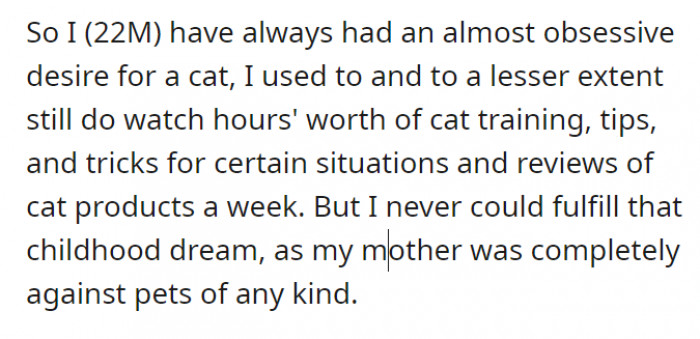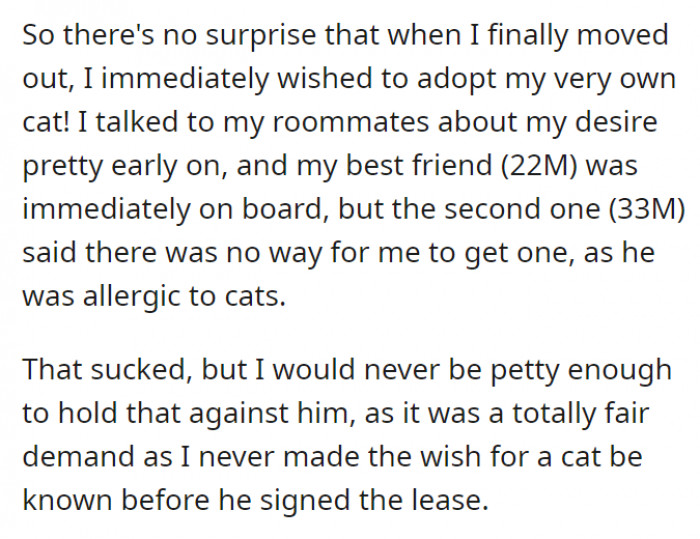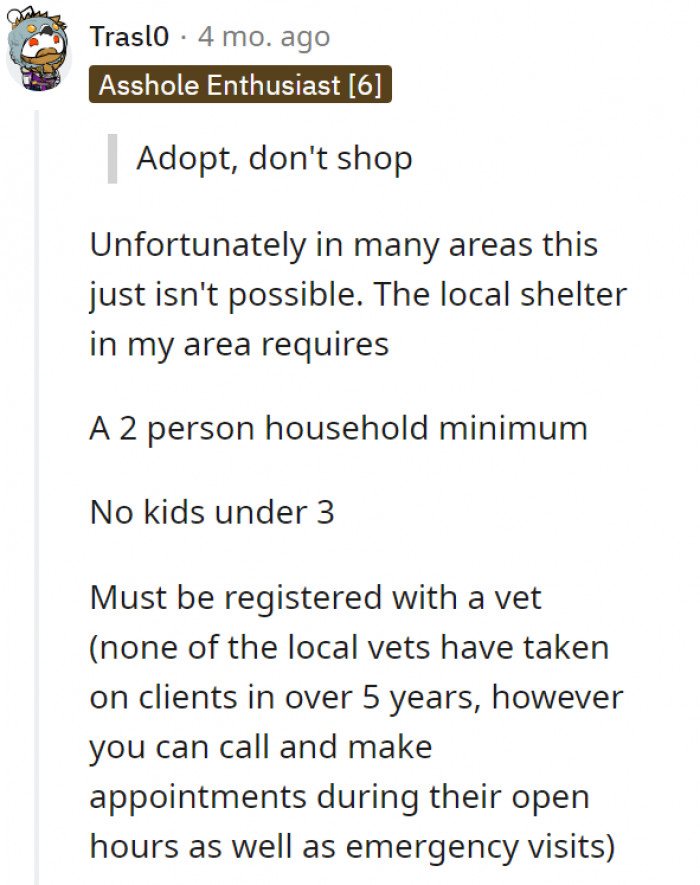Guy Gets A Kitten Even Though His Roommate Is Highly Allergic To Cats, And The Internet Supports Him For Doing So
Things don’t always go as planned—sometimes it’s a good thing, sometimes it’s not, and other times, it’s just so-so. But life goes on, and people ride with the flow of things.
You are not always in control. There are many factors when it comes to canceling or postponing pre-determined events.
Dealing with roommates is the same thing, especially those that you don’t know that well.
They can be unpredictable, and you know that everyone is not always going to be on the same page.
Compromise is a big part of living with other people. It is the foundation of being in harmony with your roommates, especially.
So when a terrible roommate decides to leave your shared apartment and sets the date for their departure, you make plans and decisions that don’t take them—the roommate—into consideration. After all, you need to make compromises for people who don’t concern you.
This Redditor posts on Reddit about just that—a terrible, terrible roommate. They planned to leave by the end of the month but changed their mind at the last minute.
Is OP an asshole for making plans—i.e., adopting a cat—without considering his horrid allergic-to-cat (ex)roommate?
OP asks the r/AITA community:

OP is an aspiring cat parent, a dream that stemmed from not being allowed to have a pet in childhood.

When he moves out, it is finally his time to fulfill his childhood dream. But!
It wasn’t his roommate's fault—having an allergic reaction to cats. OP compromised.

Understanding Interpersonal Conflict
Conflict in shared living situations often stems from unmet needs and differing values. As noted by Dr. Terri Orbuch, a relationship researcher, "When boundaries are not respected, it can lead to misunderstandings and increased conflict." This situation highlights how interpersonal dynamics can become complicated when one party feels justified in their actions while the other experiences discomfort. According to Dr. Sonja Lyubomirsky, a happiness researcher, "Cognitive dissonance arises when our behaviors contradict our beliefs, often prompting us to justify our actions, which can alienate those around us."
The Dynamics of Roommate Relationships
Roommate relationships often mirror family dynamics, where shared space can lead to conflict arising from differing needs and expectations.
Dr. William A. McGuire, a social psychologist, highlights that interpersonal conflicts like these are common when individuals have to negotiate personal boundaries.
When one party feels entitled to assert their preferences at the expense of another's well-being, it can lead to resentment and discord, which is precisely what seems to have happened in this case.
They discover that the allergic roommate is a horrible roommate.
It was a relief when this person was going to move out.

And so, OP’s hunt for his pet cat ensues!
The kitten’s arrival date is set after the (ex)roommate moves out.

The roommate notices OP’s cat supplies and tells him that OP was inconsiderate—the audacity.
It was none of his business.
Now the roommate wants OP to cancel the deal regarding the cat because of his awful planning skills.

Moreover, the roommate's allergic reaction represents a genuine health concern that shouldn't be dismissed lightly. A study published in the Journal of Allergy and Clinical Immunology shows that allergies can significantly affect quality of life, creating a substantial emotional burden for those affected.
Thus, understanding each other's perspectives is crucial for resolving this conflict effectively.
Research shows that conflict resolution strategies can significantly improve roommate dynamics. For instance, establishing clear communication and setting boundaries can mitigate misunderstandings. According to Dr. Esther Perel, a couples therapist and author, "The quality of our relationships determines the quality of our lives. Communication is the foundation of any healthy relationship." Additionally, Dr. William Doherty, a family therapist, emphasizes that "understanding each other's perspectives through active listening can transform conflicts into opportunities for growth."
OP disagrees and talks to his landlord—they agreed. But was OP being an A-hole about it?

A continuation from the edit update:

Here are a few of the responses:
OP is not at fault. The roommate changed his schedule abruptly!

The Role of Empathy in Conflict Resolution
Empathy plays a vital role in conflict resolution. According to Dr. Ramani Durvasula, a clinical psychologist, "Understanding another person's feelings can significantly reduce hostility and foster collaboration." In this situation, the individual who brought home the kitten should consider the emotional and physical impact their decision has on their roommate. As Dr. Alexandra Solomon, a relationship therapist, states, "Developing emotional intelligence is crucial for creating harmonious living arrangements."
Psychological Insights on Pet Ownership
Owning a pet can be a source of immense joy but also comes with responsibilities, especially in shared living situations.
Psychological research has shown that pets can provide emotional support, which is crucial for mental health; however, they can also create stress if they infringe on others' well-being.
Understanding the psychological impact of pet ownership is essential, as it can lead to feelings of guilt or resentment among roommates, particularly when allergies or personal preferences clash.
Set it in stone (also read: put it on paper).

NTA, but for the kitty…

Exactly, OP!

In situations like these, clear communication is essential. Studies indicate that using 'I' statements instead of 'you' accusations can diminish defensiveness and encourage a more open dialogue. For instance, saying 'I feel overwhelmed by the presence of the kitten' can lead to constructive discussions about boundaries.
Implementing regular check-ins between roommates can also preemptively address grievances before they escalate into larger conflicts.
From a behavioral standpoint, this scenario reflects a lack of consideration for the allergic roommate's health, which may indicate a selfish or impulsive decision-making process.
According to research conducted by the National Institutes of Health, individuals often prioritize immediate emotional gratification over long-term consequences, leading to decisions that can harm relationships.
Okay, cool. But how much did you say it was???

People saying 'adopt' but it’s not always an option in many places in the world!

Yep, it's not always ideal to just adopt in some areas.

Behavioral Insights on Decision-Making
Behavioral psychology suggests that our decisions are often influenced by cognitive biases, such as the confirmation bias, where individuals favor information that confirms their pre-existing beliefs. In this case, the kitten owner may selectively focus on the positive aspects of pet ownership while ignoring the negative implications for their roommate's health.
Understanding these biases can help individuals recognize when their reasoning may be flawed and encourage them to seek a more balanced perspective.
Practical Recommendations for Roommate Conflicts
To navigate such conflicts, it's vital for roommates to engage in open dialogues about their preferences and limitations.
Experts suggest organizing a meeting to discuss the impact of having pets in shared living spaces and to explore compromises, such as designating pet-free zones.
Additionally, mediation strategies can be beneficial, with a neutral third party helping facilitate discussions, ensuring that both parties feel heard and respected.
This person is just annoyed with the other comments, lol. But they side with OP still, so it’s all good.

Don’t keep your hopes up. But since OP is cool with the landlord, he has an upper hand.

Right?!

Ultimately, fostering a culture of respect and understanding can help roommates navigate their differences more effectively. Studies indicate that developing conflict resolution skills enhances interpersonal relations and contributes to overall well-being. This includes being open to compromise and recognizing that both parties' needs are valid.
By actively working towards mutual understanding, they can create a more supportive living environment that respects both the joys of pet ownership and the realities of allergies.
True...

For safety purposes!

Overall, people are not always in control. However...
Being an “inconvenience” to other people does not always mean that you are at fault. Sometimes, they just have to deal with it, since it’s not your job to make them feel comfortable, especially if it’s their own irresponsibility that drove them to that situation.
What are your thoughts on this? Make sure to comment below, and share this with people who might have similar roommate experiences!
Analysis & Alternative Approaches
Understanding the psychological dynamics at play in roommate relationships can offer valuable insights into conflict resolution. As highlighted by Dr. Esther Perel, a renowned couples therapist, "The quality of our relationships determines the quality of our lives." Fostering empathy and communication is essential for navigating interpersonal conflicts effectively, as emphasized by Dr. Dan Siegel, a prominent psychiatrist who states, "The ability to empathize and communicate effectively is crucial in maintaining healthy relationships."
Analysis & Alternative Approaches
In conclusion, navigating conflicts in shared spaces requires understanding, empathy, and effective communication strategies. Research consistently supports the need for open dialogue and compromise in resolving interpersonal conflicts.
By applying these principles, individuals can foster healthier relationships and create more harmonious living situations.



